First Things First
If you want to see an in-depth look at our visit to the robot hotel, check out Tamatha, Robbie, and I on Robbie’s Youtube video here. The section on Henna Hotel starts at 5:50, but the whole video starting from Fukuoka is a lot of fun.
You can see more of the luggage storing robot at the beginning of Robbie’s next video here.
Getting to the Robot Hotel
The world’s first robot hotel (or a robot-staffed hotel, to be more precise) sits at the edge of a 380-acre Dutch-themed amusement park complete with tulips, windmills, and full-size replicas of historic Dutch buildings in the city of Sasebo, Nagasaki prefecture, Japan (yes, you have just read all of that correctly). To walk the 15 minutes from “Huis Ten Bosch” station (as the amusement park is so named) to reach the modern, minimalist robot hotel, known as “Henna Hotel,” is a trip in itself (taxi service is also available from the adorably historic Huis Ten Bosch” station and will take five minutes). My friends and I flew into the city of Fukuoka, Japan to do some sightseeing before taking a 1 hour and 40-minute train to the Huis Ten Bosch region and arranged a taxi from there. However, the quickest way to Huis Ten Bosch is actually by high-speed ferry from Nagasaki airport directly to the amusement park, which takes about 50 minutes and costs around $20 one-way. Buses from Nagasaki station are also available.
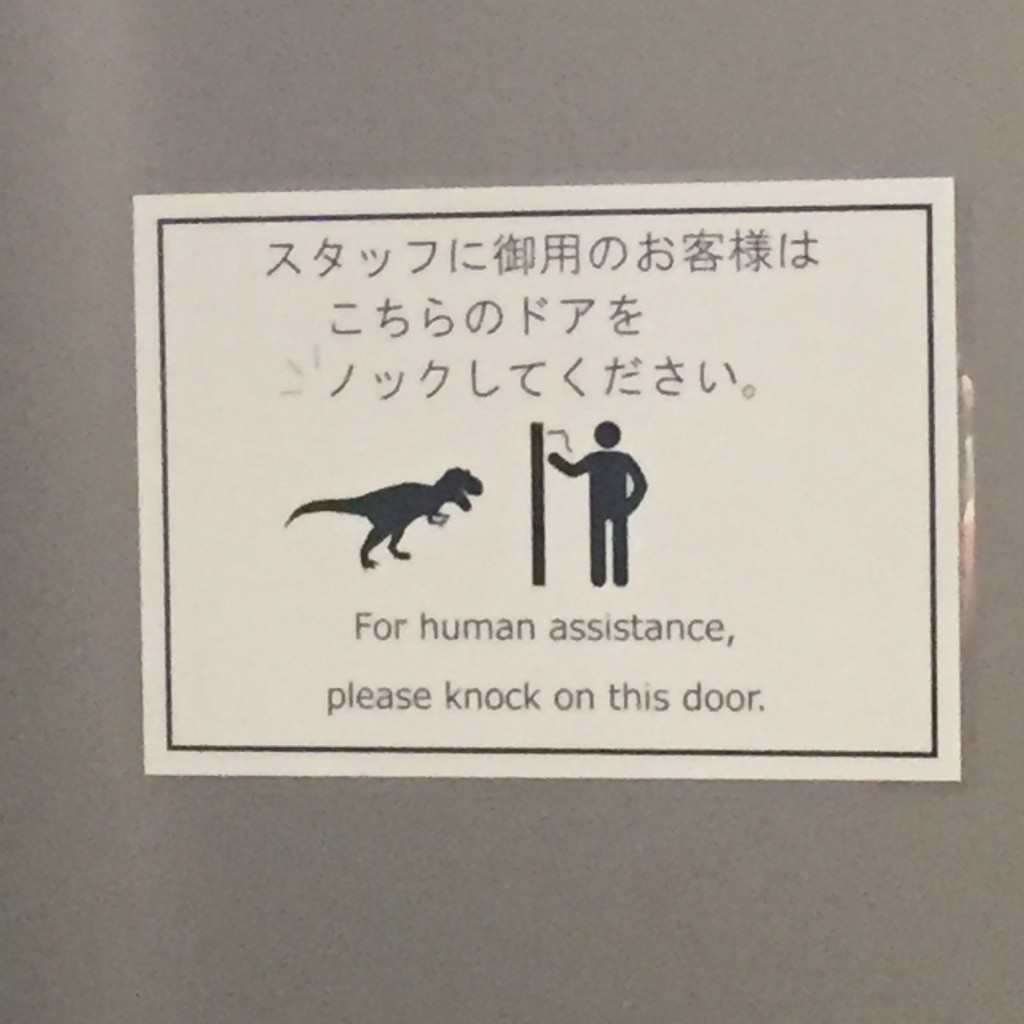
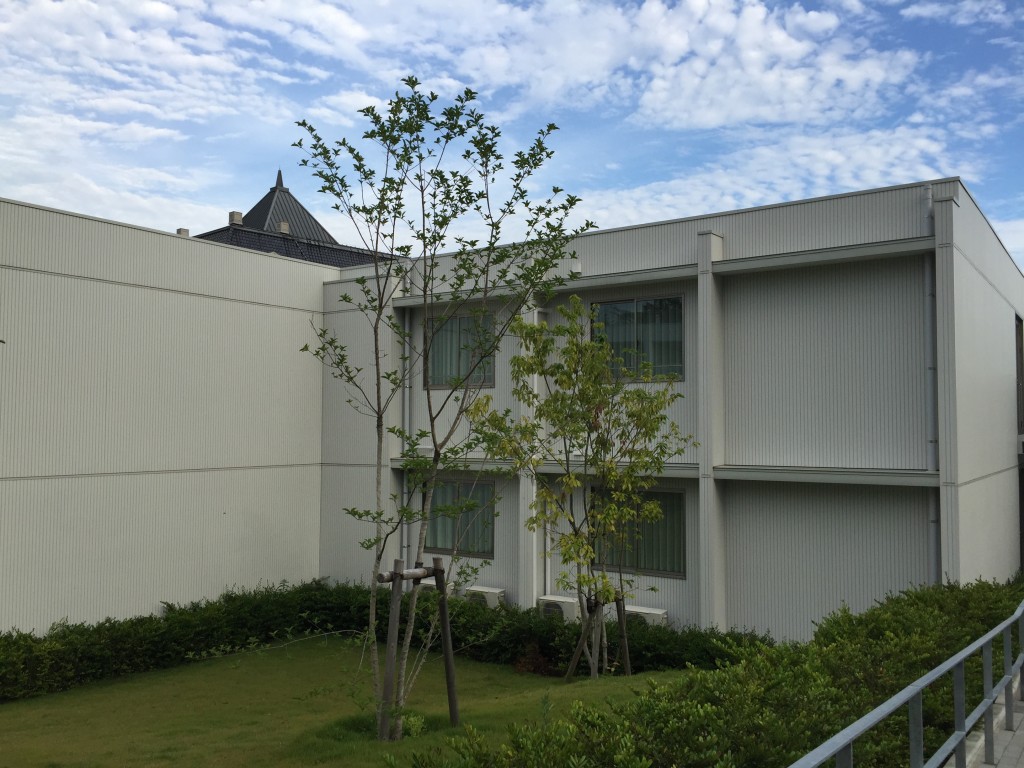
The modernist hotel evokes the sleek, non-emotional behavior of a robot
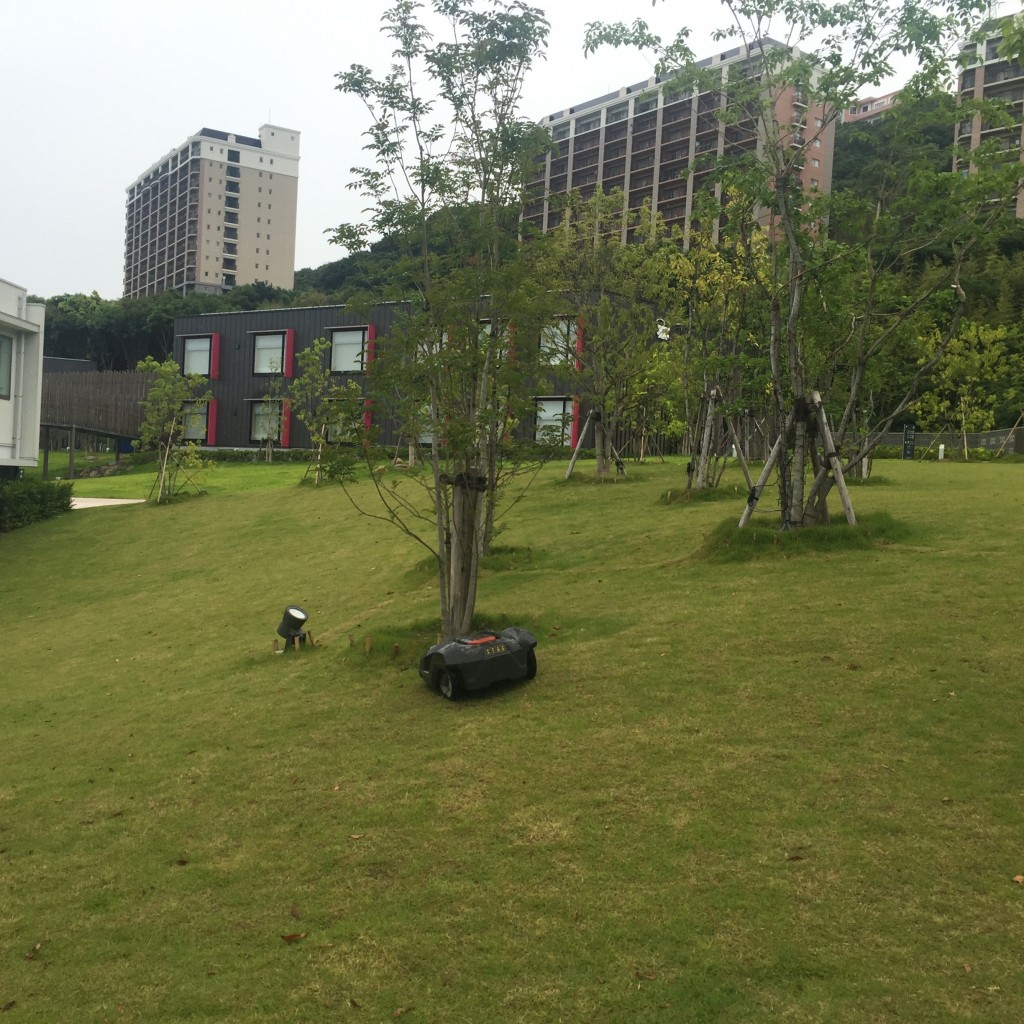
Robot groundskeepers
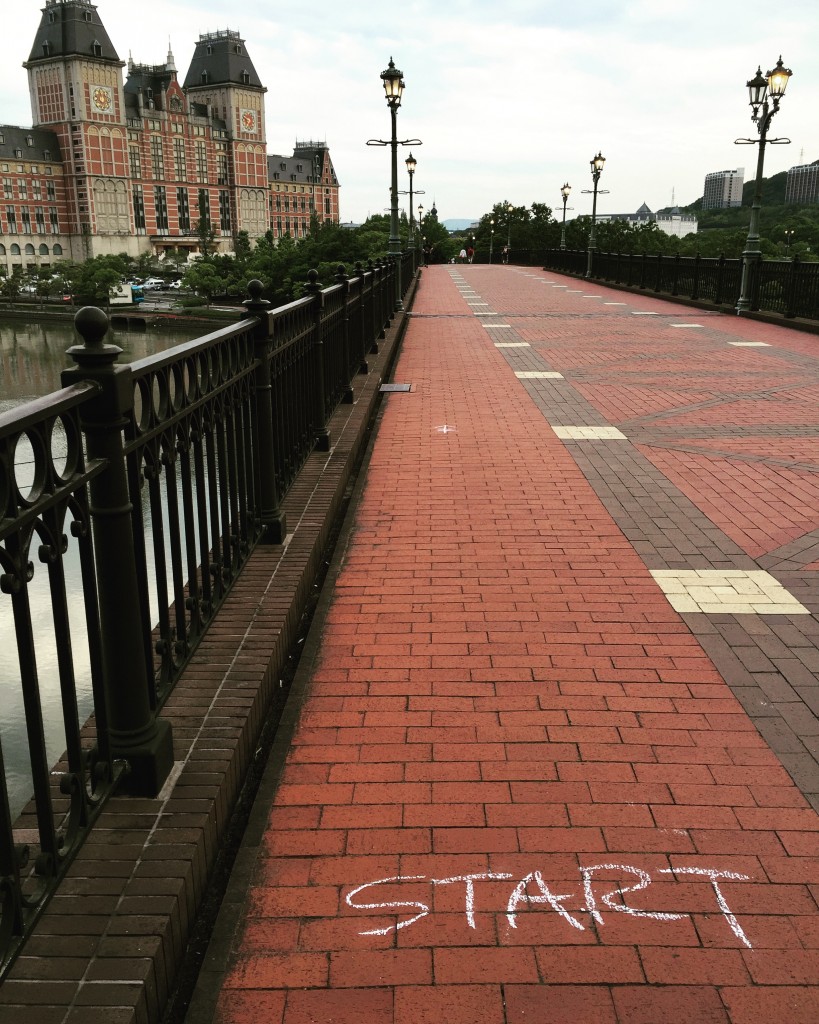
The Dutch theme park right next to the Henna Hotel
I’d Like to Check In, Mr. Velocipraptor
Check-in at the Henna Hotel starts at 3pm and the lobby is open to anyone curious to check out what these robot staff members are all about. My friends and I walked past a large smiling tulip-headed character at the entrance and a huge robotic arm behind glass in order to get the main attraction–the front desk. It’s kind of impossible to ignore the two velociraptors and female human-like robot in between them named Yumeko, whose permanent smile looks just life-like enough to be creepy. I think it’s safe to assume that everyone waits in line to get checked-in by the velociraptor (wouldn’t you?) and he is charming with a bow tie, white cap, and a head that constantly bobs up and down when he speaks. It turns out that he speaks English with that classic robotic lilt but also speaks Japanese, Korean, and Chinese. Check-in is all done on a touch panel screen in front of the dinosaur along with a face scan to allow keyless room access.
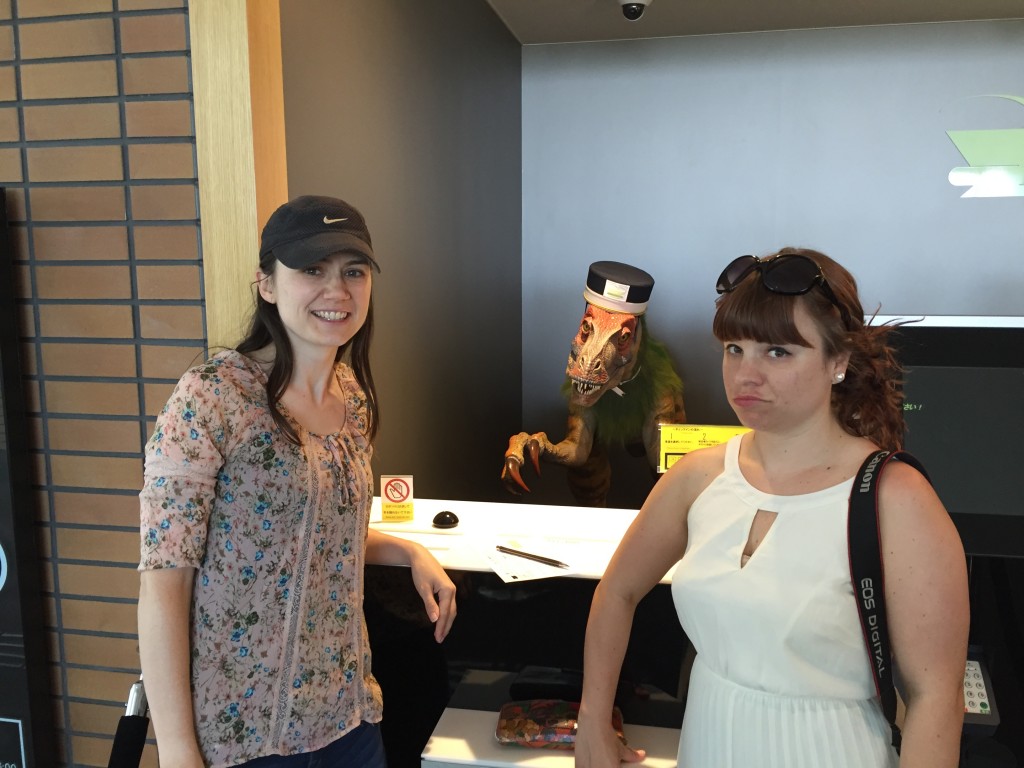
Arriving at reception
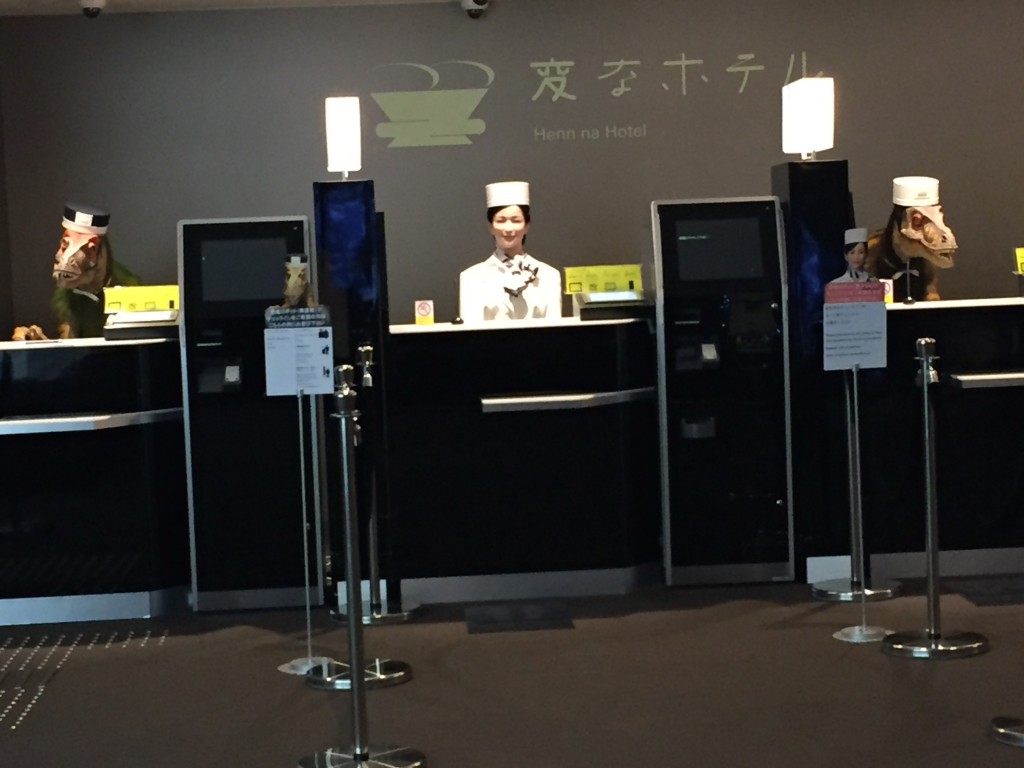
Pick your robot
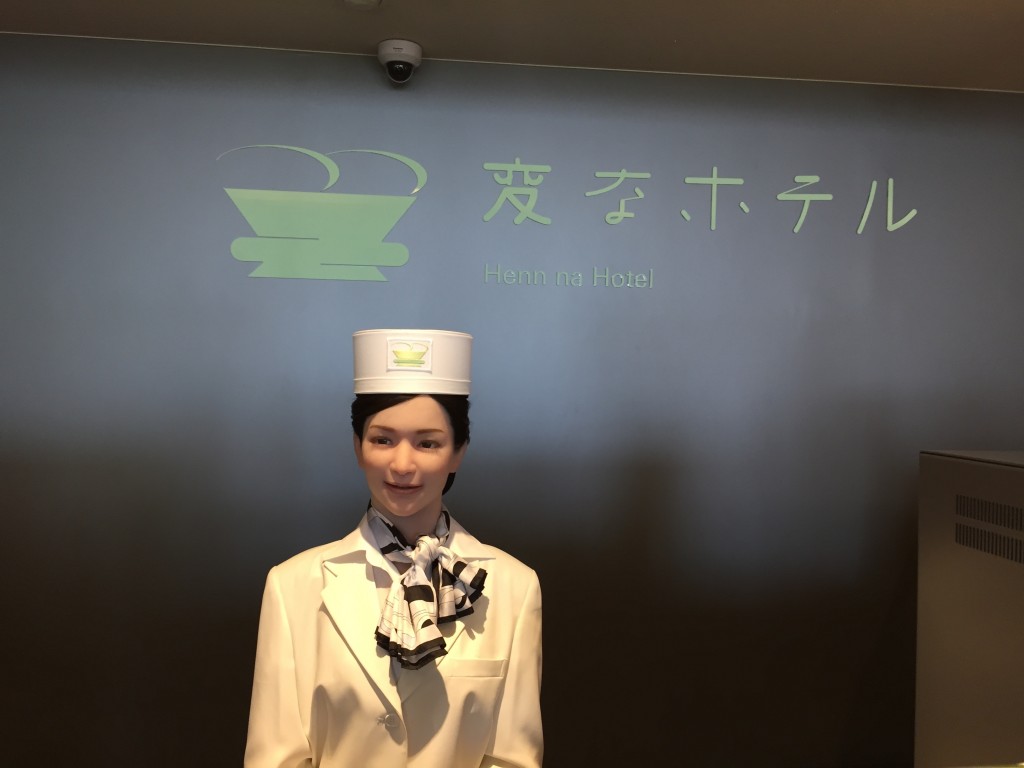
Yumeko – quite possibly the creepiest of all
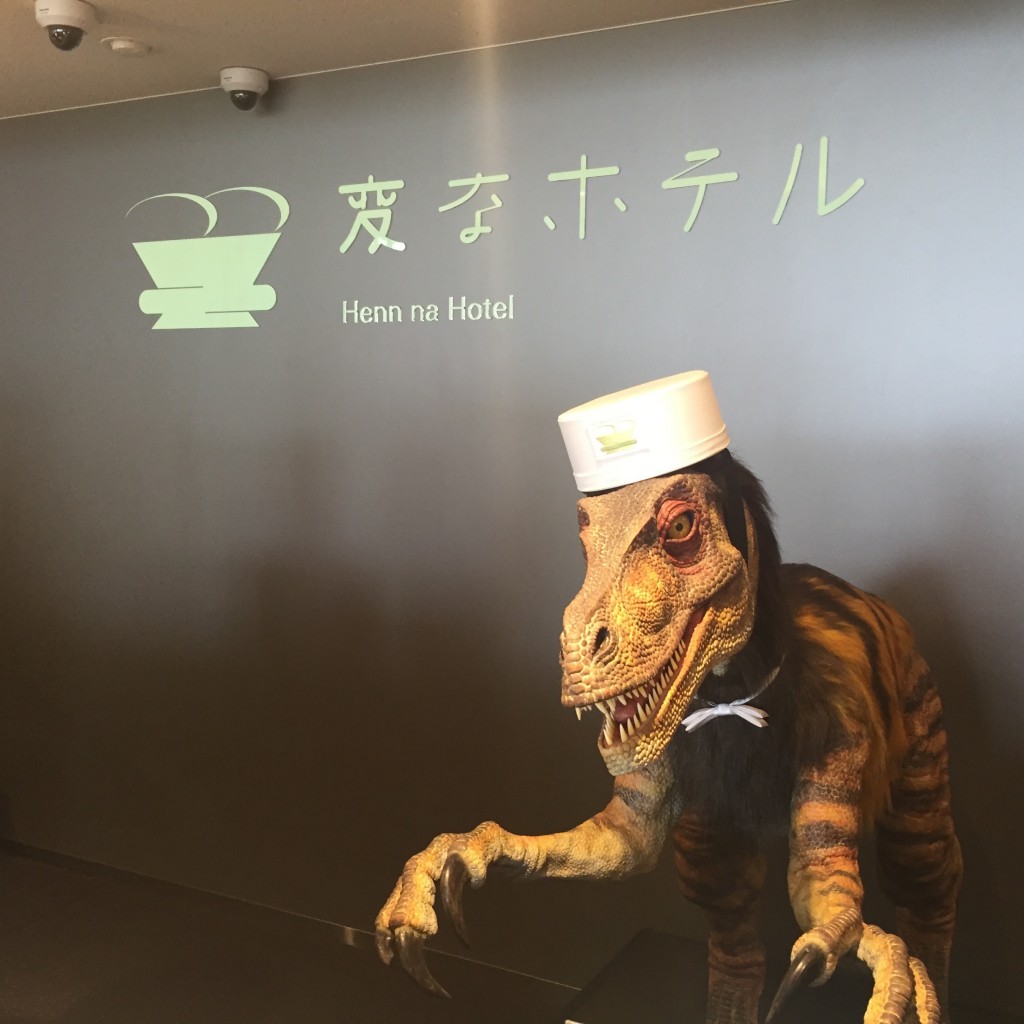
Not your average receptionist
Across from the reception desk is a large mechanical robotic arm behind glass that is available for luggage storage. For 500 yen, you can store any luggage that can fit inside the rectangular container, and watch as the robot carefully lifts the container and places it into a numbered container for safekeeping. I stood transfixed by this whole process and was especially amused by the robot “waving” at me several times at the end before resuming its default position. I couldn’t help but wave back.
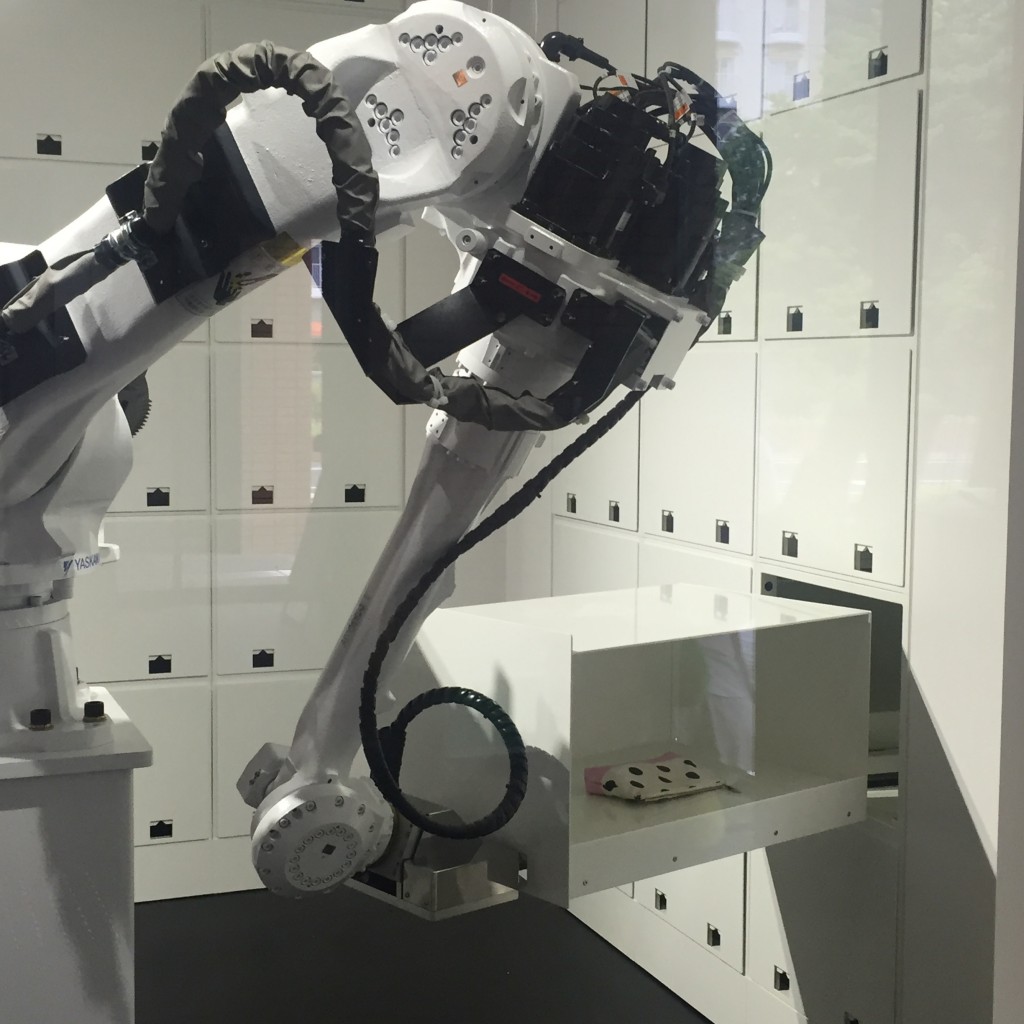
Luggage storage in action
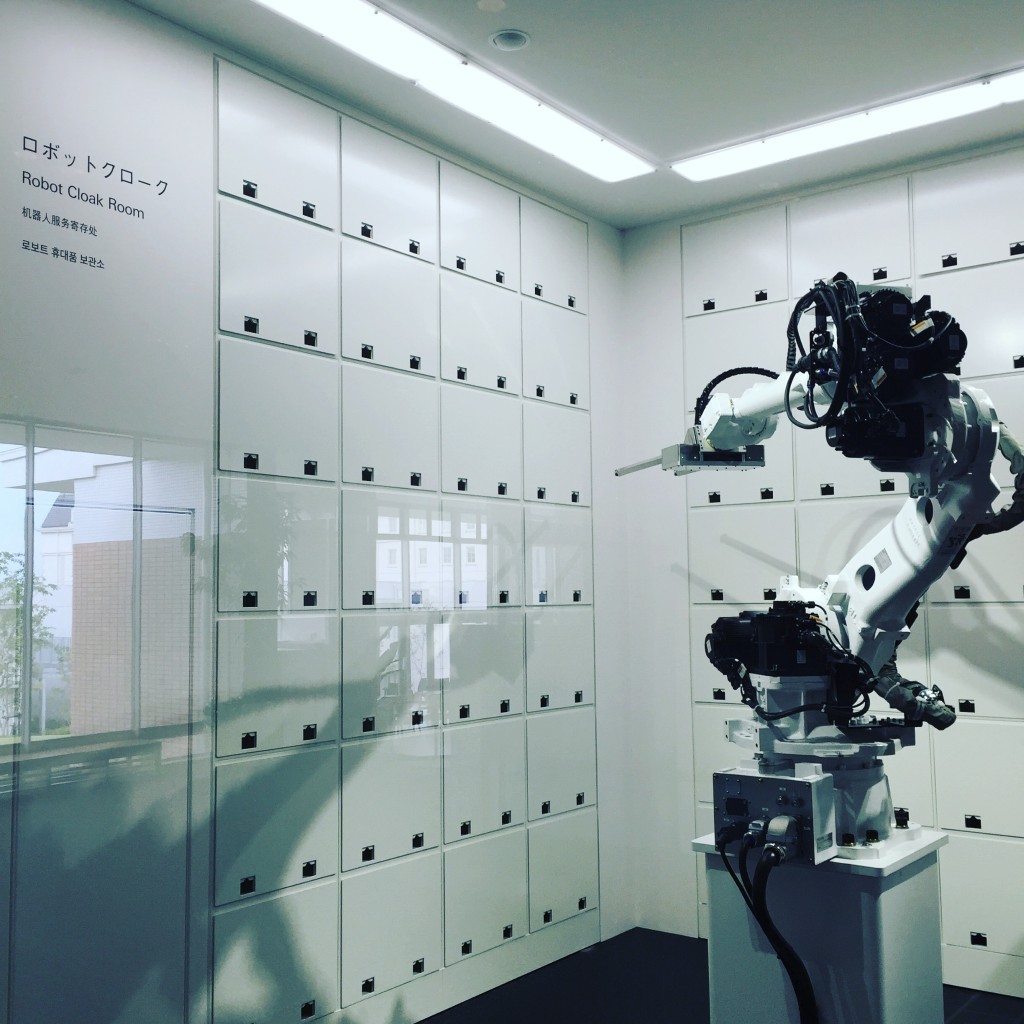
Another look at the luggage robot
To the right of reception are red robotic porters that offer luggage transport services to those staying in Wing A (which we sadly were not). According to those who have used these robotic porters, the robots will play disco music as they slowly make their way to your room. Vending machines behind these parked porters in the lobby offer face towels and other assorted Huis Ten Bosch and Henna Hotel-themed souvenirs.
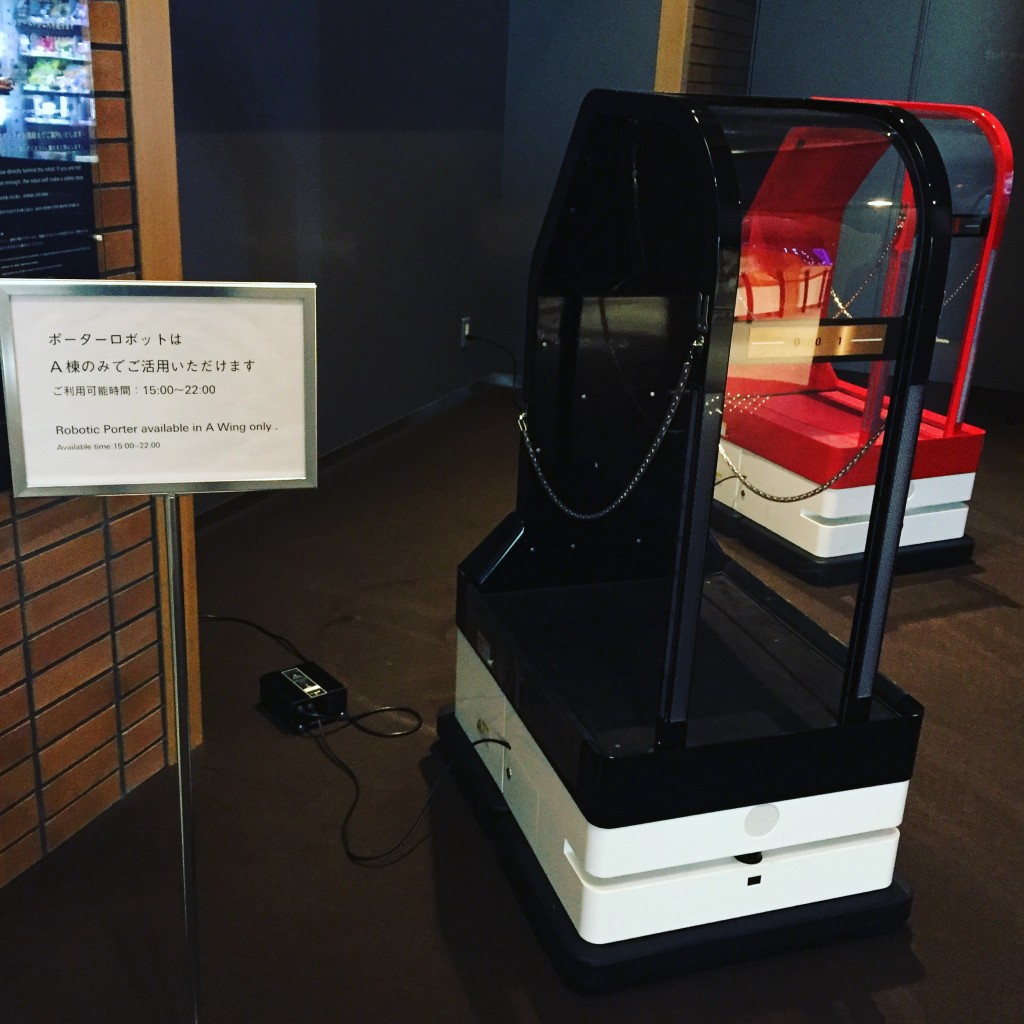
Robot porters (A Wing only)
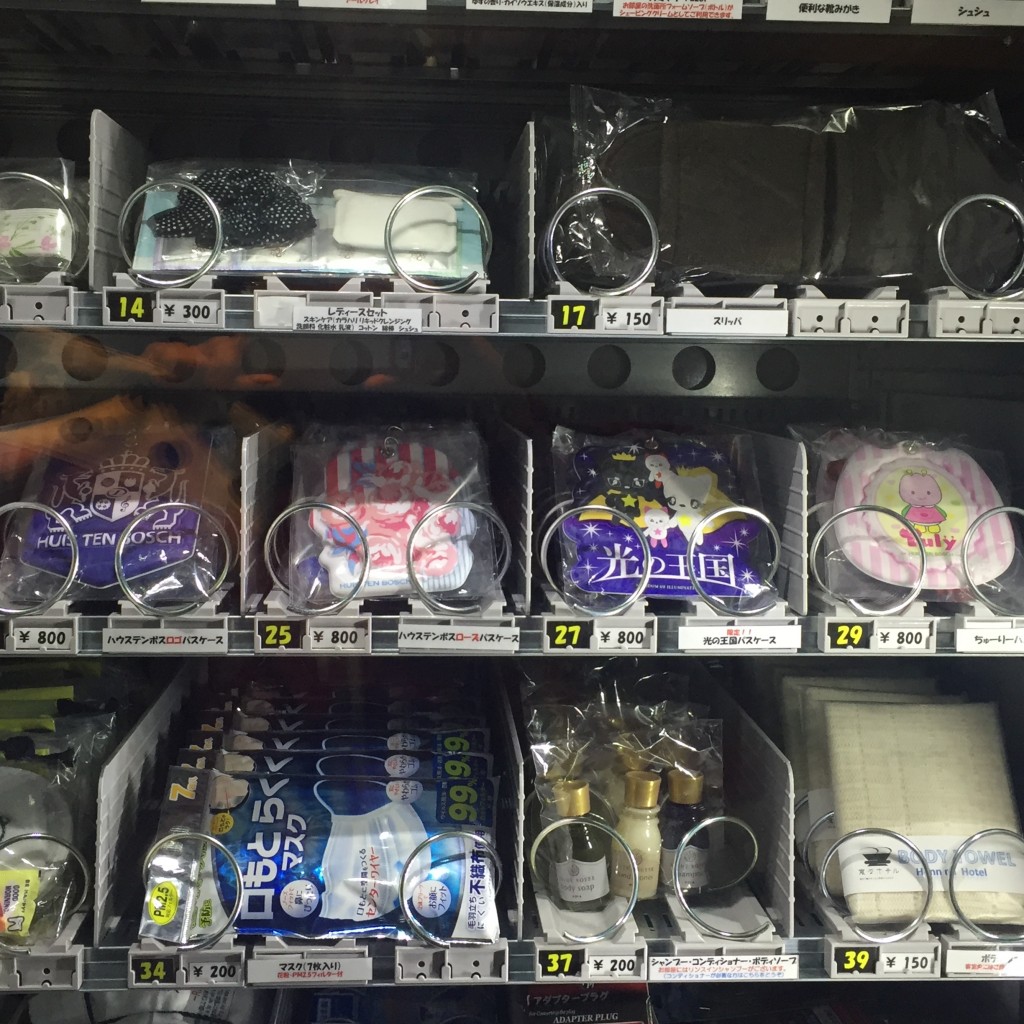
Huis Ten Bosch and Henna Hotel – a marketing marriage made in heaven?
What Do You Expect from a Smiling Tulip Head?
After checking in, my friends and I headed over with the rest of our luggage un-robot assisted and my friend who had elected to have her face scanned tried a couple of times before having the sensor in front of our room identify her correctly. Once inside, we checked our room for all evidence of robotic technology and immediately spotted the same pink tulip-headed smiling character that we had passed in the lobby happily sitting on the nightstand between the two semi-double beds. Her name, it turns out, is Churi-chan, and she came with her own book of directions in both Japanese and English. According to the book, Churi-chan can turn the lights on and off on command, answer questions about time and weather, and set an alarm your wake-up call. We quickly realized that she is no Siri, however, when numerous questions to her were answered with completely incongruous responses. Churi-chan had a particular love of saying “Turn the lights off” when we would ask her about the weather. Worried that she would somehow turn the lights on or set off an alarm in the middle of the night, we quickly made sure to turn her off. There is still something to be said for human know-how.
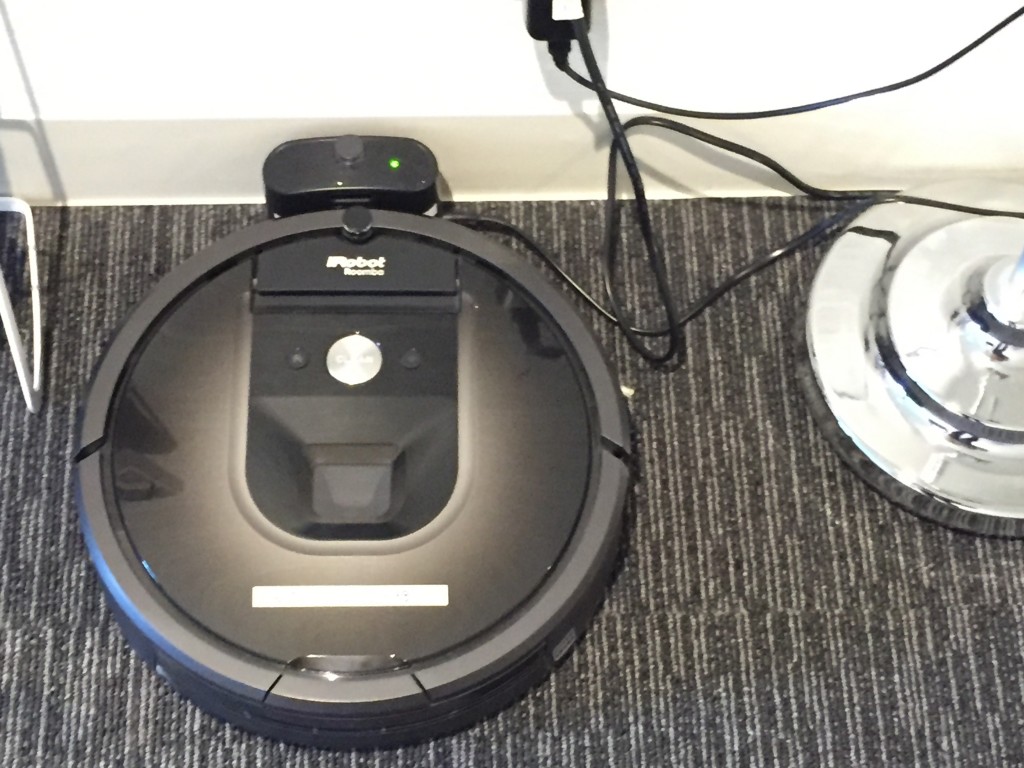
Cleaning robots in the hallway of the hotel
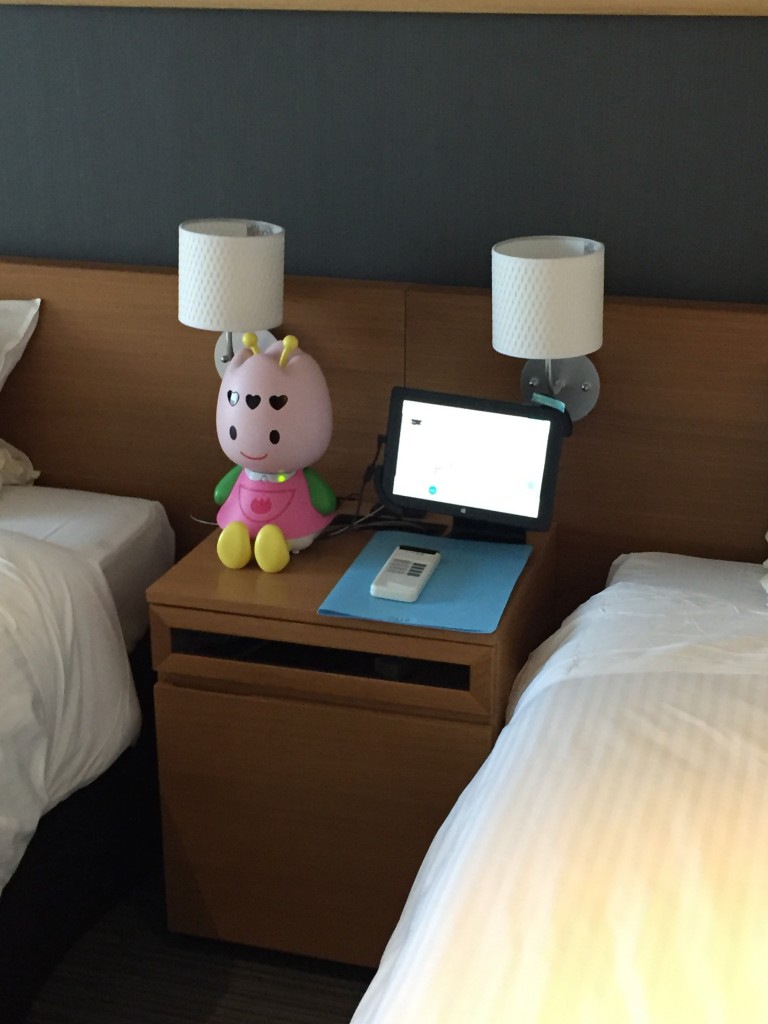
Churi-chan – your in-house robot assistant
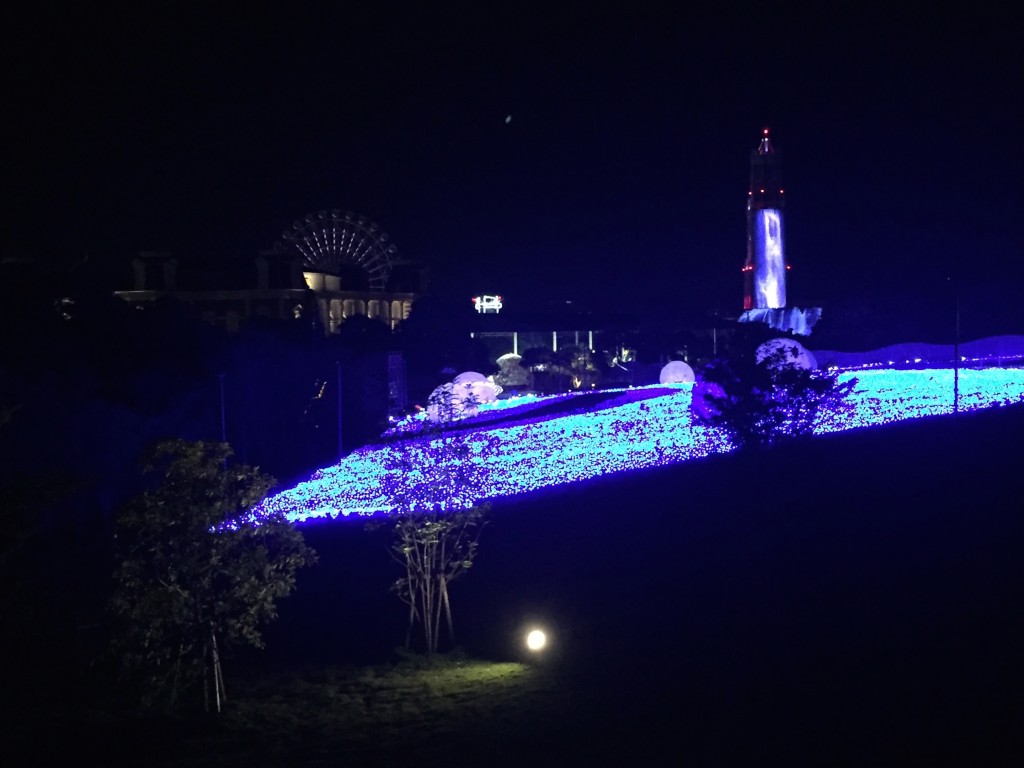
The view from our room at night (B Wing)
Besides Churi-chan and a state-of-the-art radiant panel air conditioning system, there were really no other special amenities in the hotel room itself, although the view from the room did look beautiful at night with the lights from Huis Ten Bosch in the background.
Eating dinner at the Henna Hotel is quite a challenge, as there are no human or robot staff available on-site. The only food comes from a vending machine and rice balls, hot dogs, cookies, or fried octopus balls are available. Your best bet here may be to go back towards the Huis Ten Bosch station and find dinner at one of the larger hotels or a restaurant near the theme park itself. We ended up at the Lorelei diner near the train station, and it was simple but pretty tasty. Breakfast was a much more exciting affair and is included in the price of the hotel. We had to walk along the back of the property to a restaurant managed by Huis Ten Bosch called “Aura”, which offered a large buffet of assorted bread, multi-grain rice, salad, meats, fruits, and assorted juices and teas. Aura also grows many of its own vegetables in its own on-site greenhouse, which was an interesting touch.
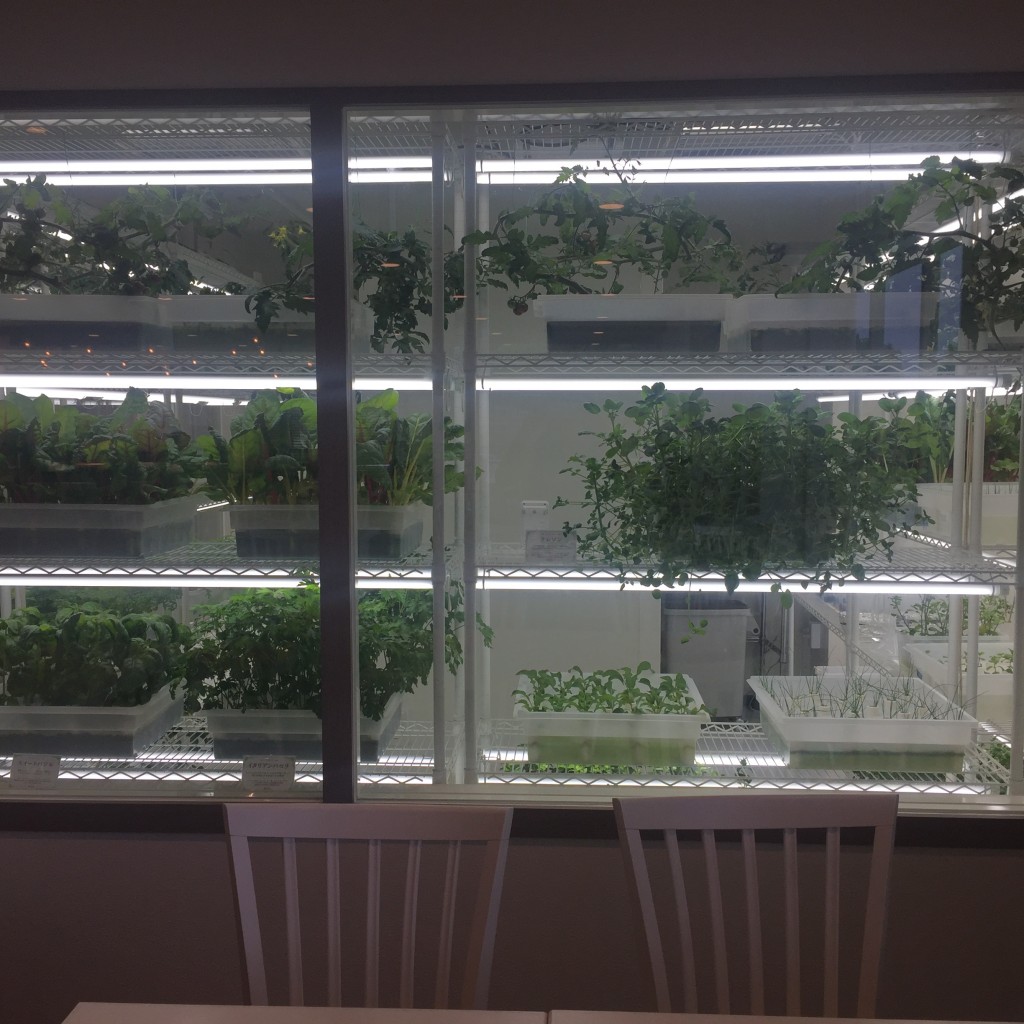
Breakfast at the Aura
Snack-Delivering Drones, Not the Best Dieting Plan
“Henna Hotel” opened in July 2015 billing itself as a the world’s first hotel staffed by robots with a commitment to using the latest technologies to achieve efficiency, starting with ten robot staff members (yes, you will see human staff while you are there, though they try to stay in the background), with plans to eventually become 90% operated by robots in the future. “Henna” actually means “strange” or “weird” in Japanese but is also associated with the word meaning “change”, and the hotel’s tagline “a commitment for evolution” expresses its attempts to use the most up-to-date building materials and remain eco-friendly by offering minimal amenities and charging extra for bed-making and cleaning services (I was sad to discover that there are no robot maids yet available). “Change” is an apt definition here, as the hotel is still very much a work-in-progress and its current features despite the novelty may not yet warrant the minimum 15,200 yen per night ($150) price tag for those “just wanting to experience the robots.” The best features of the hotel can currently be experienced in the lobby by non-guests, as interacting with the receptionists, buying from the vending machines, and using the robotic arm are all accessible without being a guest. Huis Ten Bosch president Hideo Sawada has plans for more robot staff in the future drones that will perform in shows in the lobby and deliver snacks to each room. As technology continues to improve, so will the staff’s range and functional abilities. For now, visiting Henna Hotel feels like being a beta tester of its technologies. It is a fascinating work-in-progress but oh the possibilities…
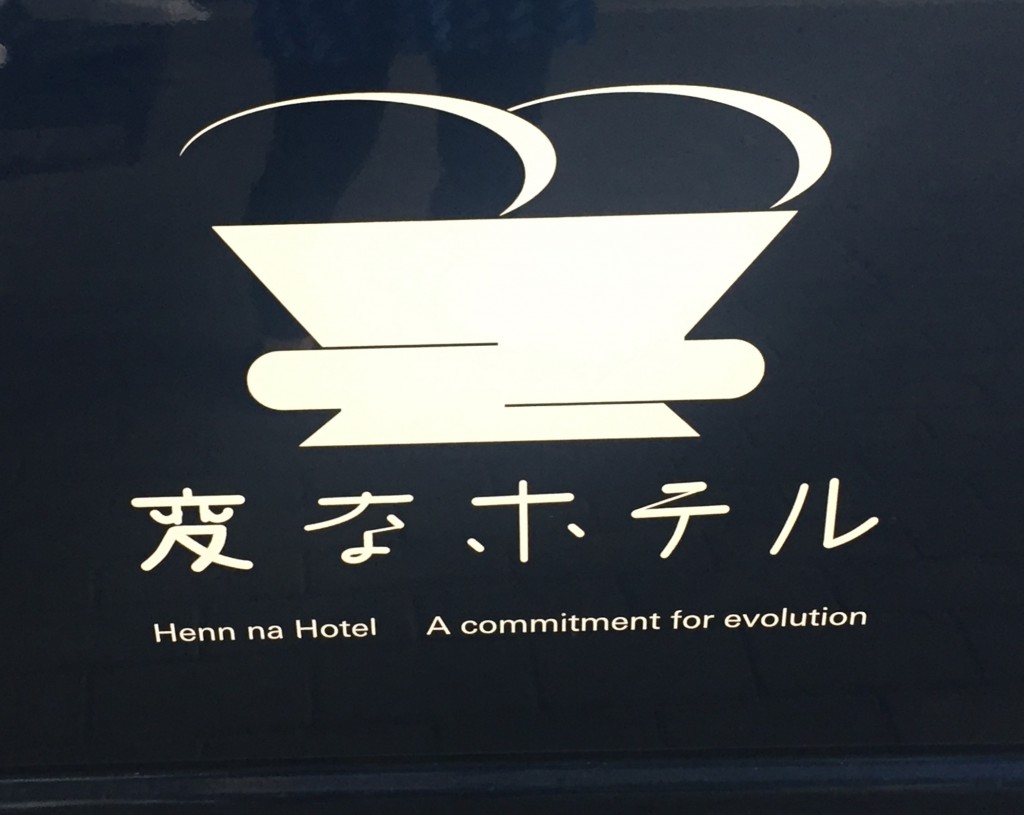


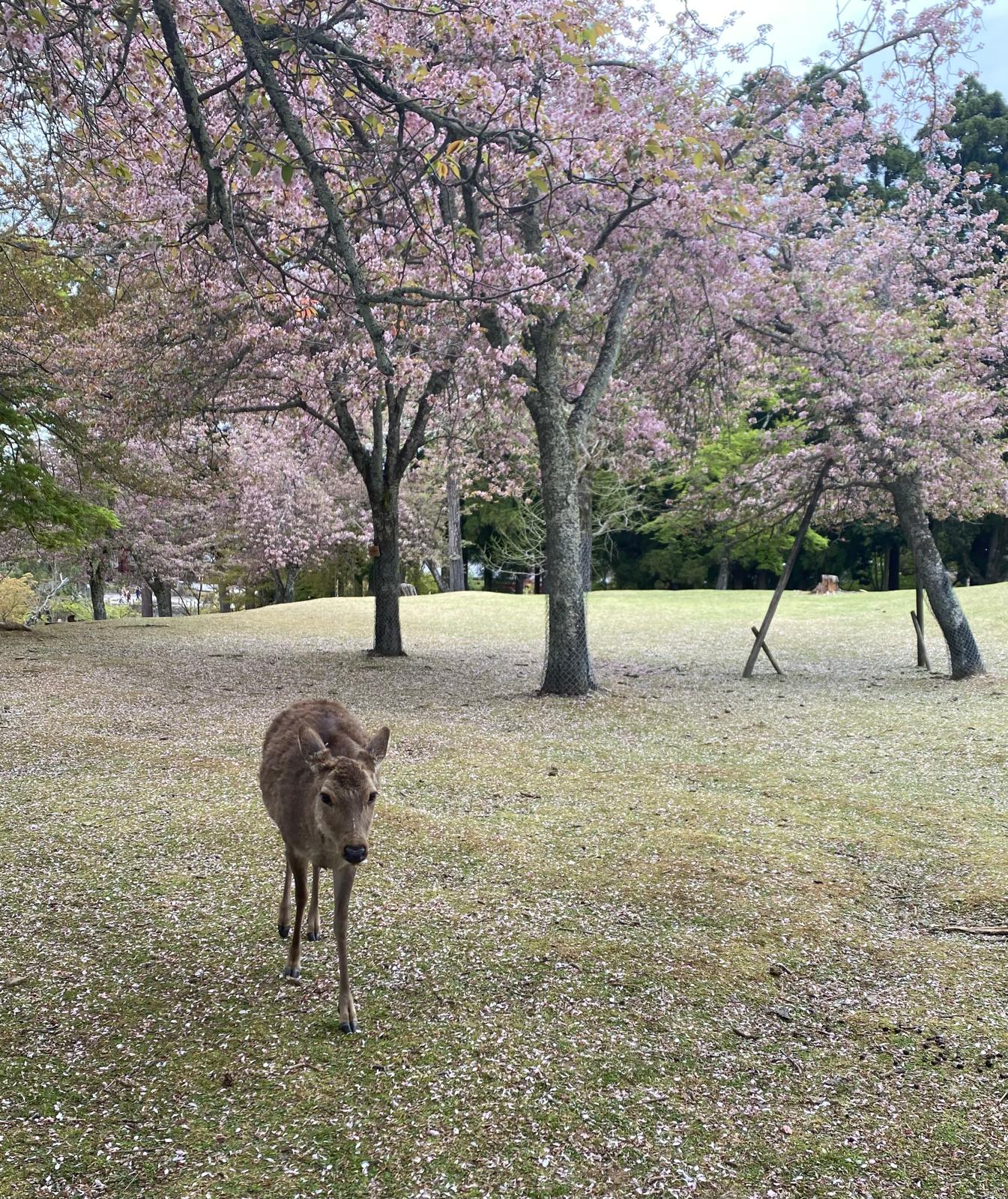
Great blog post Becky! It sounds like they could add a few more robotic or technological features to make your stay more exciting but I’m sure we’ll see a lot of advancements over the next few years. I was also surprised but pleased to read the breakfast was really good. In my experience, the free breakfasts at hotels in Japan have always been pretty disappointing.
Renae,
Thank you so much for your comment. I am really looking forward to the updates that the hotel dreams up in future. For a Japanese hotel breakfast, I think that the buffet offered was pretty big. Although I had hoped that robots would serve me breakfast, the Aura restaurant was a nice surprise. I hope you get to visit one day =)